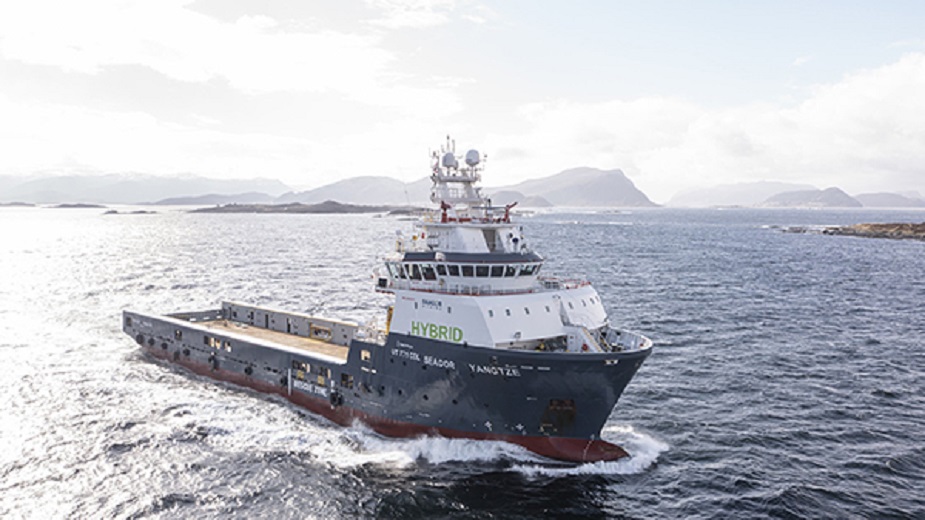The ABS-classed SEACOR Yangtze is now the tenth vessel in the SEACOR Marine Holdings Inc. (SEACOR Marine) fleet with hybrid battery power.

ABS provided survey and engineering review services for the integration of a lithium-ion based energy storage system into the SEACOR Yangtze platform support vessel (PSV). The upgrade to more sustainable operations was completed in Norway.
In addition to the energy storage system, the vessel now utilizes closed bus dynamic positioning (DP) operations, a first in SEACOR Marine’s fleet. This upgrade is the next step in optimizing PSV hybrid battery technology by further reducing fuel consumption and engine hours, while providing safe ride-through capabilities. The vessel joins six other SEACOR Marine PSVs having the ABS ESS-LiBATTERY notation.
Four additional PSVs, the ABS-classed SEACOR Ohio, SEACOR Alps, SEACOR Andes and the SEACOR Atlas, have also been contracted by SEACOR Marine for hybrid battery power upgrades. When these upgrades are completed in 2025, over half of SEACOR Marine’s PSV fleet will be powered by hybrid systems.
“Advanced energy storage systems are an essential step on the road to net-zero emissions. Together with SEACOR Marine, we have been pioneers in this area, and are proud to help them realize their sustainability ambitions. ABS is well-positioned to use our deep industry knowledge of advanced battery technologies to support clients along their decarbonization journey,” said Patrick Ryan, ABS Senior Vice President and Chief Technology Officer.
“SEACOR Marine's continued investment in hybrid technology demonstrates our strong commitment to decarbonizing our fleet and embracing sustainable practices. This strategic move, supported by ABS, highlights SEACOR Marine's dedication to reducing greenhouse gas emissions, driving efficiency in maritime operations, and providing outstanding value to our customers,” said John Gellert, SEACOR Marine’s Chief Executive Officer.
ABS has developed industry-leading guidance on alternative hybrid electrical technologies and understands that additional alternative energy options, particularly electrification, are needed to help the maritime industry achieve net zero by 2050. Learn more about the ABS Electrification Center, which is based in Singapore and is supporting maritime decarbonization projects globally.